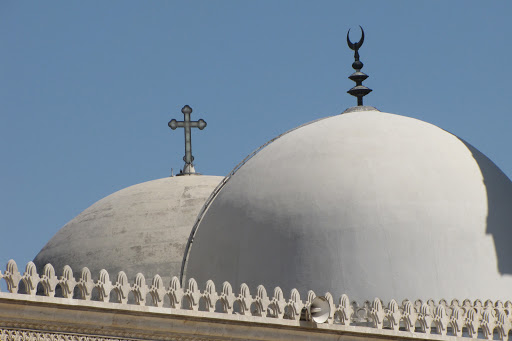Many people have questions regarding the spiritual leaders of Muslim communities. In Spain, in particular, there are more questions than ever about this role, since it became known that an imam planned the recent attacks in Barcelona and Cambrils in Catalonia.
Mohamed El Ghaidouni, president of the Union of Islamic Communities of Catalonia (Ucidcat) helps answer our questions. He has a master’s degree in mathematics and a doctorate in statistics; he’s also a social educator, an academic researcher, and an expert in conflict resolution.
What is an iman’s job?
“An imam is the person in charge of providing spiritual guidance for a community of believers of the Muslim faith; he presides and directs prayers. However, an imam is not a member of the clergy, as a priest is. His social role, personal circumstances, and work conditions are very different.”
Who chooses the imam of a community?
“This is the responsibility and task of the board of directors of each community, and they are not obliged to consult any other institution,” Mohamed El Ghaidouni explains. This is confirmed by Enric Vendrell, director general of religious matters for the government of Catalonia, in an interview on Catalonian radio station RAC1. Both El Ghaidouni and Vendrell explain that the Spanish law of Religious Freedom (1980) grants full autonomy to religious communities to choose their own leaders.
This is how it works in all Spanish Muslim communities, as well as in churches and other religious institutes of all denominations and faiths registered in the Register of Religious Entities of the Ministry of Justice. “The board of directors also chooses other people who work with the community, such as those who volunteer to teach religion or Arabic,” El Ghaidouni adds. Each community has its own statutes that define the functions of the board, the duration of its members’ terms, its internal organization, etc.
What’s the process for choosing an imam?
“First of all, the candidates are interviewed. Then, they are invited to give a talk and a couple of sermons, so the board can hear their preaching. Then, if all of these exercises judged positively, the board and the prospective imam come to an agreement regarding the contract. However, there is no totally uniform system for choosing an imam in Spain; each community follows its own specific process following a model like the one I just described.”
What are an imam’s working conditions?
Despite being registered as being actively employed, an imam doesn’t have the same working conditions as a priest. “We have to take into account that imams are usually married, more than 30 years old, and normally have children to raise; so, for example, they don’t live at their mosques,” El Ghaidouni comments. Today, as a consequence, imams generally have a salary and working conditions that their communities consider insufficient for them to be able to make ends meet while providing for their families. Also, they aren’t entitled to unemployment benefits. Consequently, El Ghaidouni says, “the social status of imams needs to be reconsidered.”
What are the requisites for candidates?
In order for a candidate for the position of imam to be chosen by the board of directors of a mosque, he must be knowledgeable in the areas of religion and communication. “He must be able to make the message reach the faithful,” El Ghaidouni emphasizes. He also needs to be able to work well with the board of directors.
Does he need to have any specific education?
“The issue of formation must be brought up to date. An imam must know the languages and the social and cultural context of his community, above all so that he can respond to the needs of the youngest among the faithful, in a way they can understand,” El Ghaidouni states.
However, today there is no regulation obliging an imam to have any specific formation. As of two years ago, he must present an official document certifying that he—the imam, or any volunteer in the community—has no criminal record of abuse of minors.
Is there a register of imams and communities?
There is no census or register as such, although the Islamic Commission of Spain has expressed the intention of creating one. According to Enric Vendrell, the government of Catalonia has direct contact with the Muslim communities, as it offers them frequent guidance, assistance, and advice.
Is the situation the same in other countries?
In Belgium, each mosque chooses its own imam, but there is a certain level of regional control. Dani Rovirosa, a journalist, explains in an interview on the same radio station, RAC1, that in Flanders, for example, imams are required to take a “civic integration” course. In other areas, there is a voluntary register; participants can obtain public subsidies. In order to apply, the imams must fulfill certain requisites, such as being fluent in Flemish or French, or having at least 200 members in their community. However, according to Rovirosa, there are only 82 imams in that register, because there are many communities that receive subsidies directly from other countries, such as Saudi Arabia or Turkey. In order to improve the situation, since 2015 the Belgian government has been requiring new imams to have a degree in theology.
In 2016 in France, The Islamic Foundation of France was created to support social, educational, and cultural projects. It also has the mission of forming imams and supervising the financing of Muslim communities. In the United Kingdom, there are also some organizations and initiatives dedicated to the formation of imams, but they are not yet fully consolidated, and there is no supervision of the funding of communities.

